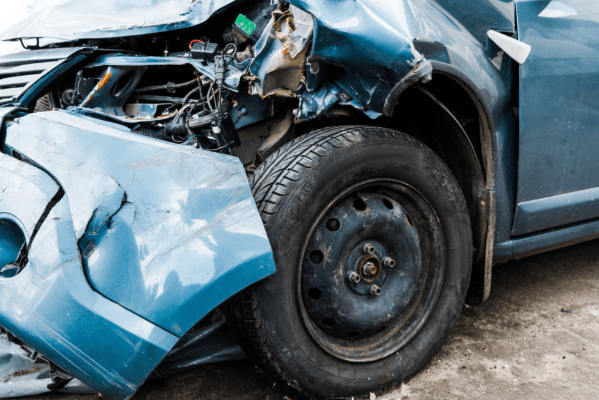The most common types of summer holiday incidents and how you can claim
Around 71.0 million visits abroad were made by Brits in 2022, and one–third of the country plans to go abroad twice this year, despite the cost of living.
After months of saving, planning, and anticipation, it can be hugely traumatic to suffer an injury on holiday.
The personal injury experts at claims.co.uk reveal the most common type of summer holiday incidents occurring abroad and the best actions to take to claim compensation.
A spokesperson for claims.co.uk says, “Injuries and illnesses abroad can be caused in just about any situation. Many travellers often instantly panic when it comes to claiming for an incident that has happened abroad.
“Whilst sometimes an accident can be at fault of the injured person, the injury can also be caused because of someone else failing in their duty of care.
“If a holidaymaker has been hurt and they aren’t at fault, they have a legal right to make a no win no fee claim for compensation.”
Below, the personal injury experts claims.co.uk highlight the most common incidents happening abroad and the best actions to take to claim compensation:
-
Sporting injuries
Holidaymakers will jump at the chance to try new adventurous activities such as jet skiing, quad biking and scuba diving.
However, sporting injuries are often most common abroad and can lead to someone being bed bound, departing early or even hospitalisation.
Even if injuries are minor, it is important to think about making a claim as soon as possible. If the accident was not the fault of the injured holiday maker, you can make a claim providing proof another person or party was responsible.
If the incident wasn’t anybody else’s fault, the only way you will be able to claim is if your travel insurance policy covers you for that particular sport.
If you contact an experienced solicitor straight away, they will make sure all the costs of your injury are covered so you’re not left out of pocket.
The amount of compensation you receive will depend on factors such as how serious your injury was, how it has affected your life, whether you need future care or support.
-
Food poisoning
Food poisoning is another highly feared illness that can cut a significant amount of time out of your holiday.
In hotter countries you are more prone to food poisoning, as bacteria can grow quicker in warmer climates. Therefore, try to remain cautious around riskier foods like seafood or chicken
If you are abroad with a holiday operator, the operator is legally required to ensure that food and drink provided is to an acceptable standard.
Fortunately, it is relatively straightforward to claim compensation for holiday sickness and other gastric illnesses under the 2018 Package Travel Regulations.
In the case of food poisoning, so long as you can prove you were ill and that this resulted from unsatisfactory food or drink, provided under your holiday contract, your claim will be made out.
If you do become ill, make sure to drink as much water as possible to avoid extreme dehydration. Going forward, eat bland foods, keep surfaces clean and rest as much as possible.
-
Road accidents
Tourists abroad are three times more likely to be involved in an accident on holiday than local people.
The risk of being involved in road accidents abroad increases because – unlike in the UK – motorists in most other countries drive on the other side of the road.
Travelling by road in another country is almost unavoidable, whether that’s driving a car, airport transfer buses, coaches and even sightseeing in Land Rovers and minibuses and similar vehicles.
Whatever the circumstances of the accident, you should also take specialist advice about making an injury claim, and a solicitor will need to be able to determine whether your claim must be brought under the laws of the country where your accident occurred.
If the accident was caused by an uninsured driver or a driver who cannot be traced and identified, you would have to claim compensation against the foreign insurance company or – if there is one – under the country’s scheme equivalent to the UK’s Motor Insurance Bureau.
However, it is important to know that unfortunately, the Motor Insurance Bureau does not compensate UK drivers who are injured abroad.
If you are involved in a road accident, you must:
-
– Call the police and get a copy of their report or a police reference number
-
– Exchange details with the other party involved
-
– Write down the driver’s vehicle details, including registration and a contact number
-
– Take photographs of the scene (if safe to do so)
-
– Take names and addresses of any witnesses
-
– Note down the date and time the accident happened
-
– Seek legal advice as soon as possible
-
Scalds, serious sunburn & heatstroke
32% of Brits said they travel abroad to simply to sunbathe.
Hot countries like Spain and Portugal experience heat up to 40 degrees Celsius in the summer months.
Therefore, there is a significantly high risk of sunburn and heatstroke for those spending hours in the sun.
It is very important to take the necessary precautions to protect yourself against nasty burns, heat stroke and even skin cancer.
Travel insurance is used to cover travellers in case of an unforeseen emergency. Even if you fall ill abroad because of a heatwave, your travel insurance would cover medical treatment, as well as the cost of getting you home if medically necessary.
-
Slips and trip injuries
Injuries due to slip, trip and fall accidents abroad are very common, and your right to claim is depending on the cause.
Generally, businesses have a legal duty to follow health and safety laws designed to keep members of the public safe. For example, carrying out detailed risk assessments, clearly marking wet floors, and fixing cracked or potholed pavements within a reasonable timeframe.
These businesses/organisations can be anything from hotels, theme parks, water parks and cruise ships.
If they fail to take the proper precautions or have been negligent in their duty and you’ve been injured as a result, then it’s likely you could make a personal injury compensation claim.
You shouldn’t have to deal with the physical, emotional and financial impact your injury may have
You could claim compensation if your accident occurred:
-
– Within the last three years (or within three years of you becoming aware of the injury)
-
– Your accident was the result of somebody else’s negligence
-
– The other party owed you a duty of care
Again, seeking professional advice is a good way of knowing what you are entitled to.
Has Brexit made it harder to claim for an accident abroad?
Not in any meaningful way because Brexit resulted in minimal changes to personal injury claims following accidents abroad. Perhaps the most notable change relates to the availability of compensation for injured rail passengers under 2007 regulations: the Rail Passengers’ Rights and Obligations (Amendment) (EU Exit) Regulations 2018, SI 2018/1165 limits protection to rail journeys only in the UK.
That said, it is more important than ever to have your case run by a solicitor who is experienced in cross-border injury compensation claims. They will need to determine whether your claim can be brought in the English courts; how any proceedings can be served in the relevant country; which laws – UK or the other country’s laws – will apply to the issues in question and whether a local solicitor that speaks English can assist with local legal services.

| [donate]
| Help keep news FREE for our readersSupporting your local community newspaper/online news outlet is crucial now more than ever. If you believe in independent journalism,then consider making a valuable contribution by making a one-time or monthly donation. We operate in rural areas where providing unbiased news can be challenging. |


















